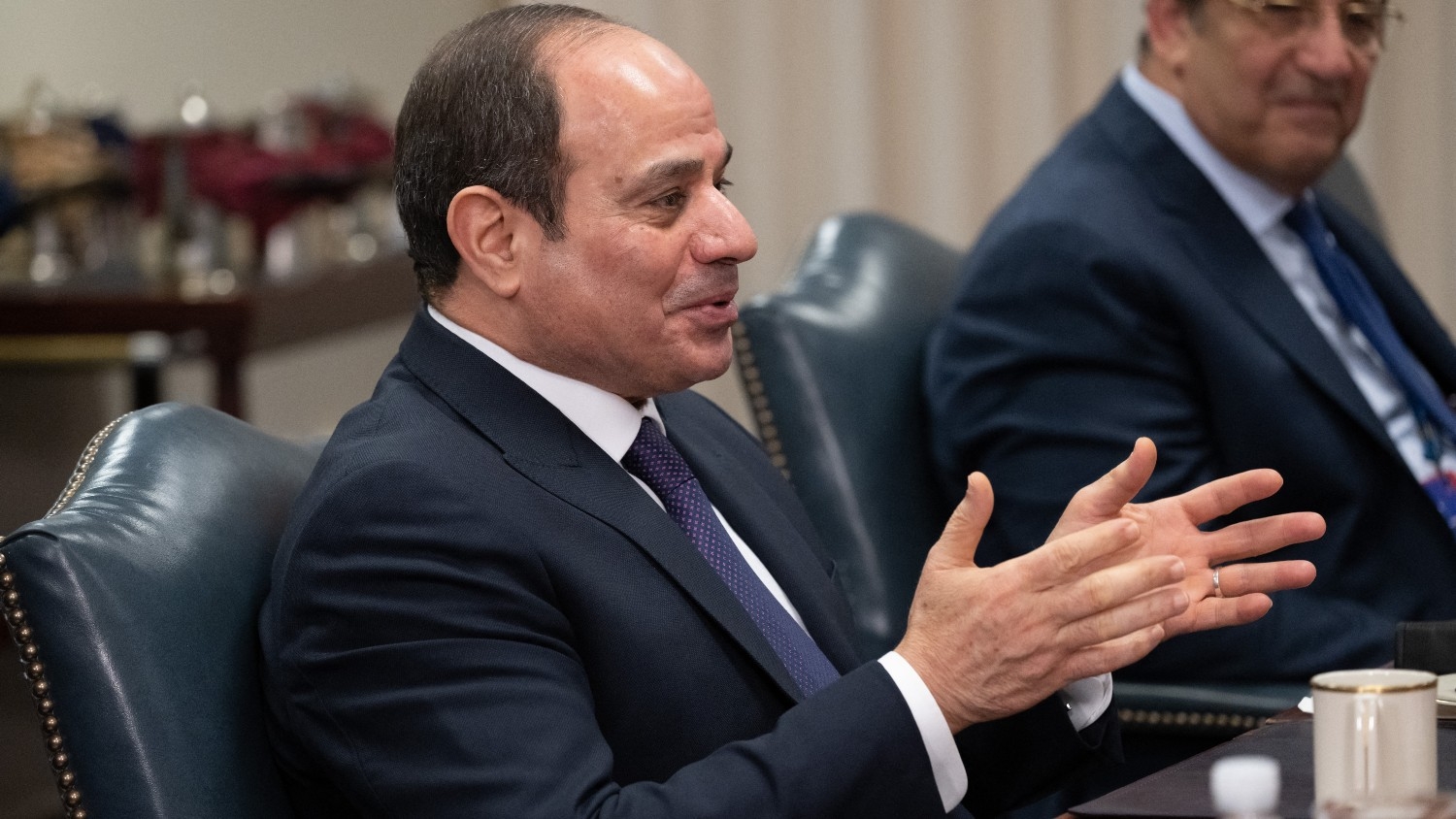US Jewish leaders ask Egypt's Sisi for help in releasing Israelis from Gaza

Two Jewish American leaders met with Egyptian President Abdel Fattah el-Sisi on Thursday during his visit to Washington, where they raised the issue of several Israeli soldiers detained in Gaza.
The Conference of Presidents of Major American Jewish Organizations' CEO William Daroff and its chair Dianne Lob met with Sisi on Thursday, Daroff said in a statement on Twitter.
"I also raised the issue of the Israelis who are being held captive by Hamas in Gaza: Avera Mengistu and Hisham al-Sayed, and the bodies of two soldiers, Hadar Goldin, z"l, and Oron Shaul, z"l, and reiterated the importance of their return to the American Jewish community," Daroff said.
Hamas is holding Mengistu, an Israeli citizen, who entered Gaza in September 2014 for unclear reasons. Sayed, a Palestinian citizen of Israel, wandered into the besieged enclave in 2015 and was captured by Hamas, the de-facto ruler of Gaza, and accused him of being "a soldier in the occupation army".
The two Israeli soldiers, Goldin and Shaul, were captured a month earlier by the group. Israel says both are presumed dead, while Hamas refused to comment on whether they are alive or dead.
Hamas and Israel have indirectly negotiated a prisoner swap deal at various times since 2014, without any breakthroughs.
According to Haaretz, the Israeli prime minister's office said they would continue working with Egypt to negotiate the Israelis' release.
The most famous trade came in 2011, when Gilad Shalit - an Israeli soldier abducted by the Palestinian group in a cross-border raid in 2006 - was released in exchange for more than 1,000 Palestinians that were being held in Israeli jails.
Hundreds of Palestinians released as part of the Shalit deal were later re-arrested by Israel, however, and were forced to serve the rest of their sentences.
There are currently 4,760 Palestinian prisoners inside Israeli jails.
Prisoners in Egypt
Sisi arrived in Washington this week for the US-Africa Leaders Summit, where the Biden administration has hosted dozens of leaders from the African continent to discuss the climate crisis, good governance, food security, and global health, as well as bolstering US-Africa trade and investment opportunities.
"The United States is 'all in' on Africa's future," Biden told African leaders from 49 countries and the African Union at a three-day summit in Washington that began on Tuesday.
Biden's remarks, and the summit, aim to position the United States as a partner to African countries amid competition with China, which has sought to expand its influence by funding infrastructure projects on the continent and elsewhere.
Yet human rights organisations have criticised the summit, saying that the Biden administration was backing its human rights commitments by inviting the Egyptian president. Prior to becoming president, Biden said there would be "no more blank checks for Trump’s 'favorite dictator'", referring to Sisi.
The Freedom Initiative - a Washington-based non-profit advocating for individuals wrongfully detained in the Middle East and North Africa - held a protest outside the White House on Wednesday, calling for the freeing of Egypt's political prisoners.
At least 60,000 political prisoners are estimated to have been jailed since President Abdel Fattah el-Sisi overthrew Mohamed Morsi, the country's first democratically elected president, in 2013, according to Human Rights Watch. Sisi denies there are political prisoners in Egypt.
Middle East Eye delivers independent and unrivalled coverage and analysis of the Middle East, North Africa and beyond. To learn more about republishing this content and the associated fees, please fill out this form. More about MEE can be found here.





